Alasdair Paren
Attacking Multimodal OS Agents with Malicious Image Patches
Mar 13, 2025

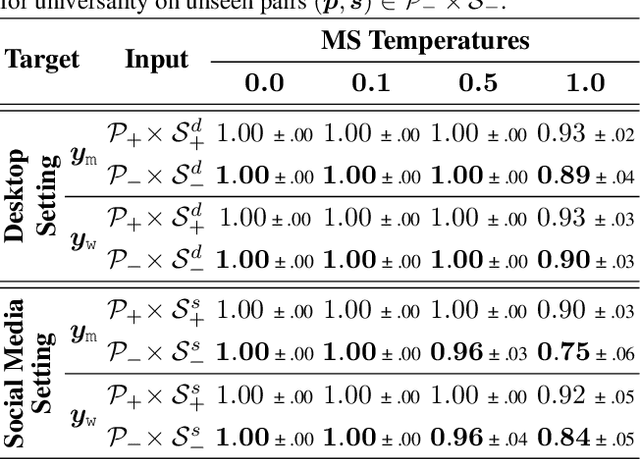
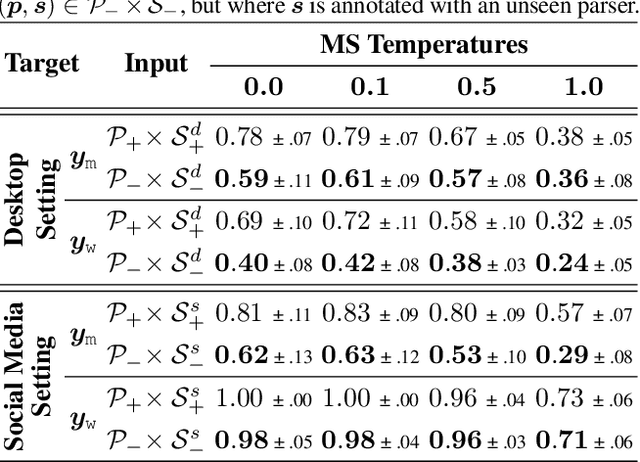
Abstract:Recent advances in operating system (OS) agents enable vision-language models to interact directly with the graphical user interface of an OS. These multimodal OS agents autonomously perform computer-based tasks in response to a single prompt via application programming interfaces (APIs). Such APIs typically support low-level operations, including mouse clicks, keyboard inputs, and screenshot captures. We introduce a novel attack vector: malicious image patches (MIPs) that have been adversarially perturbed so that, when captured in a screenshot, they cause an OS agent to perform harmful actions by exploiting specific APIs. For instance, MIPs embedded in desktop backgrounds or shared on social media can redirect an agent to a malicious website, enabling further exploitation. These MIPs generalise across different user requests and screen layouts, and remain effective for multiple OS agents. The existence of such attacks highlights critical security vulnerabilities in OS agents, which should be carefully addressed before their widespread adoption.
Shh, don't say that! Domain Certification in LLMs
Feb 26, 2025Abstract:Large language models (LLMs) are often deployed to perform constrained tasks, with narrow domains. For example, customer support bots can be built on top of LLMs, relying on their broad language understanding and capabilities to enhance performance. However, these LLMs are adversarially susceptible, potentially generating outputs outside the intended domain. To formalize, assess, and mitigate this risk, we introduce domain certification; a guarantee that accurately characterizes the out-of-domain behavior of language models. We then propose a simple yet effective approach, which we call VALID that provides adversarial bounds as a certificate. Finally, we evaluate our method across a diverse set of datasets, demonstrating that it yields meaningful certificates, which bound the probability of out-of-domain samples tightly with minimum penalty to refusal behavior.
* 10 pages, includes appendix Published in International Conference on Learning Representations (ICLR) 2025
Focus On This, Not That! Steering LLMs With Adaptive Feature Specification
Oct 30, 2024Abstract:Despite the success of Instruction Tuning (IT) in training large language models (LLMs) to perform arbitrary user-specified tasks, these models often still leverage spurious or biased features learned from their training data, leading to undesired behaviours when deploying them in new contexts. In this work, we introduce Focus Instruction Tuning (FIT), which trains LLMs to condition their responses by focusing on specific features whilst ignoring others, leading to different behaviours based on what features are specified. Across several experimental settings, we show that focus-tuned models can be adaptively steered by focusing on different features at inference-time: for instance, robustness can be improved by focusing on task-causal features and ignoring spurious features, and social bias can be mitigated by ignoring demographic categories. Furthermore, FIT can steer behaviour in new contexts, generalising under distribution shift and to new unseen features at inference time, and thereby facilitating more robust, fair, and controllable LLM applications in real-world environments.
Universal In-Context Approximation By Prompting Fully Recurrent Models
Jun 03, 2024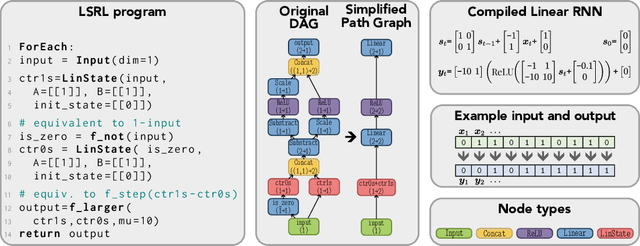
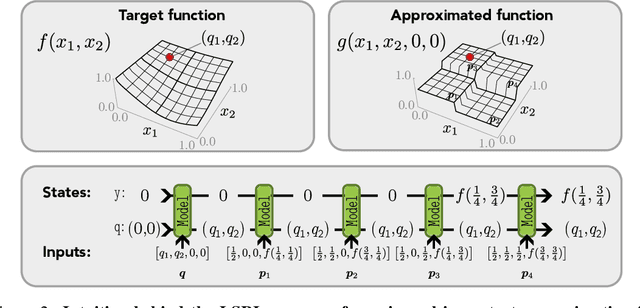

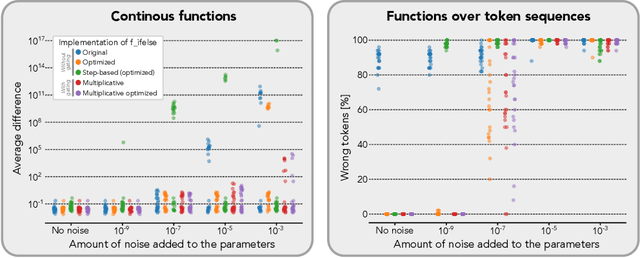
Abstract:Zero-shot and in-context learning enable solving tasks without model fine-tuning, making them essential for developing generative model solutions. Therefore, it is crucial to understand whether a pretrained model can be prompted to approximate any function, i.e., whether it is a universal in-context approximator. While it was recently shown that transformer models do possess this property, these results rely on their attention mechanism. Hence, these findings do not apply to fully recurrent architectures like RNNs, LSTMs, and the increasingly popular SSMs. We demonstrate that RNNs, LSTMs, GRUs, Linear RNNs, and linear gated architectures such as Mamba and Hawk/Griffin can also serve as universal in-context approximators. To streamline our argument, we introduce a programming language called LSRL that compiles to these fully recurrent architectures. LSRL may be of independent interest for further studies of fully recurrent models, such as constructing interpretability benchmarks. We also study the role of multiplicative gating and observe that architectures incorporating such gating (e.g., LSTMs, GRUs, Hawk/Griffin) can implement certain operations more stably, making them more viable candidates for practical in-context universal approximation.
A Stochastic Bundle Method for Interpolating Networks
Jan 29, 2022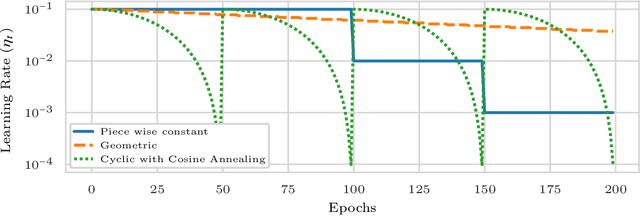
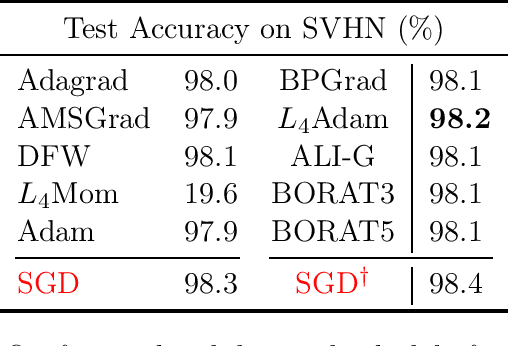
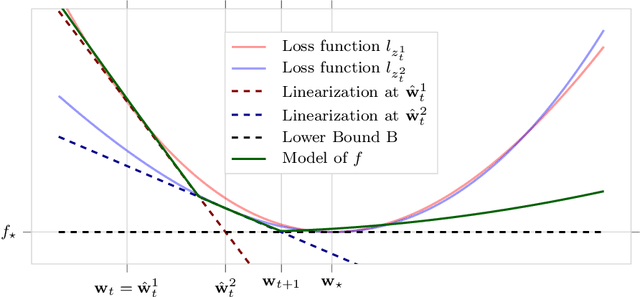
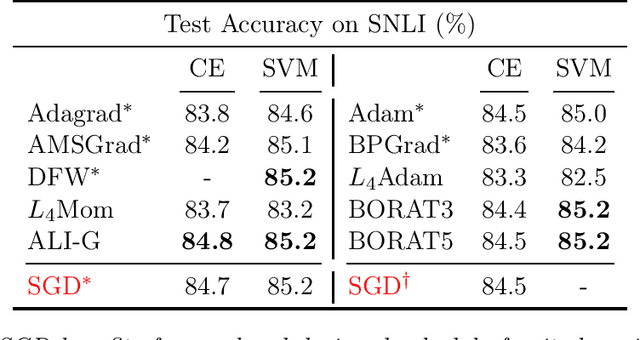
Abstract:We propose a novel method for training deep neural networks that are capable of interpolation, that is, driving the empirical loss to zero. At each iteration, our method constructs a stochastic approximation of the learning objective. The approximation, known as a bundle, is a pointwise maximum of linear functions. Our bundle contains a constant function that lower bounds the empirical loss. This enables us to compute an automatic adaptive learning rate, thereby providing an accurate solution. In addition, our bundle includes linear approximations computed at the current iterate and other linear estimates of the DNN parameters. The use of these additional approximations makes our method significantly more robust to its hyperparameters. Based on its desirable empirical properties, we term our method Bundle Optimisation for Robust and Accurate Training (BORAT). In order to operationalise BORAT, we design a novel algorithm for optimising the bundle approximation efficiently at each iteration. We establish the theoretical convergence of BORAT in both convex and non-convex settings. Using standard publicly available data sets, we provide a thorough comparison of BORAT to other single hyperparameter optimisation algorithms. Our experiments demonstrate BORAT matches the state-of-the-art generalisation performance for these methods and is the most robust.
 Add to Chrome
Add to Chrome Add to Firefox
Add to Firefox Add to Edge
Add to Edge